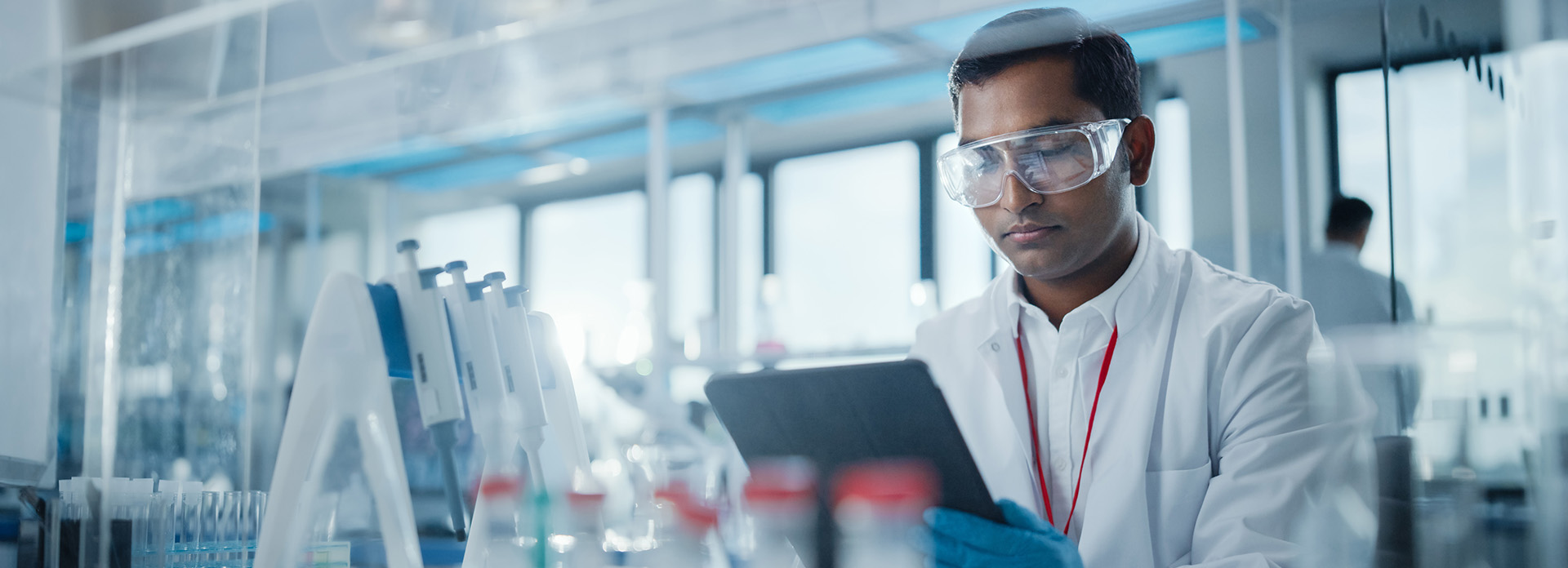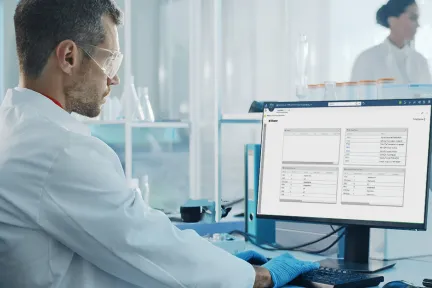Laboratory Informatics
Optimize Lab Productivity and Compliance
Deliver the Power of Laboratory Informatics
Science-based organizations need to optimize operations by improving efficiency while maximizing quality and adhering to regulations, while driving innovation. These challenges also apply to the lab environment, which needs to remove inefficiencies and compliance risks from lab processes and to provide a collaborative environment for innovation.
The solution is to remove disconnected and paper-based processes that are error-prone and hamper access of relevant data throughout the research, development and manufacturing lifecycle. It is imperative to make decisions as early as possible in the lifecycle, in order to drive innovation and to optimize processes and products. Digital Laboratory Informatics capabilities allow for streamlined and more efficient lab workflows, harmonization and standardization and a fully integrated and automated easy-to-deploy process.
BIOVIA Laboratory Informatics Key Benefits
Increase Efficiency and Productivity
Automate manual tasks, such as data entry, data analysis, and report generation.
Improve Data Quality and Accuracy
Reduce the risk of human errors through direct data capture and data standardization.
Enhance Collaboration
Increase scientific collaboration with a central data repository and built-in collaborative tools.
Improve Compliance
Ensure compliance with regulations by tracking and managing data, samples, and workflows.
Reduce Costs
Eliminate re-work, reduce errors, reduce chemical waste, and improve scientific efficiency to lower costs.
Discover BIOVIA ONE Lab - Your Home for Science
The Digital Lab is Here
A SaaS Cloud Solution
BIOVIA ONE Lab is available on the 3DEXPERIENCE platform to help deliver the benefits of unified laboratory informatics for increased efficiency and accelerated product development.
Key Benefits:
- A unified data model for all experimental data, that can be accessed by other BIOVIA and Dassault Systèmes solutions
- A cloud-native solution, deployed on data centers around the globe for sovereign data control
- Seamless workflows which mimic scientists' physical lab work, reducing non-value added tasks
- Integrated collaborative tools and cloud data storage for centralized knowledge management
Explore BIOVIA Laboratory Informatics Solutions Related to Your Professional Role
BIOVIA Laboratory Informatics solutions on the 3DEXPERIENCE platform are packaged as Roles, to get you up to speed faster and work more efficiently with all needed applications available at your fingertips. Select a package that corresponds to your role in an organization.
Start Your Journey
The world of Laboratory Informaticsis changing. Discover how to stay a step ahead with BIOVIA
Join the conversation in the BIOVIA Laboratory Informatics User Community!
FAQ About Laboratory Informatics Software
Also Discover
Learn What BIOVIA Can Do for You
Speak with a BIOVIA expert to learn how our solutions enable seamless collaboration and sustainable innovation at organizations of every size.
Get Started
Courses and classes are available for students, academia, professionals and companies. Find the right BIOVIA training for you.
Get Help
Find information on software & hardware certification, software downloads, user documentation, support contact and services offering






